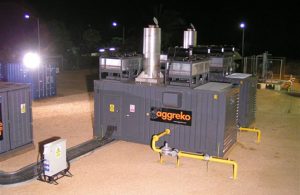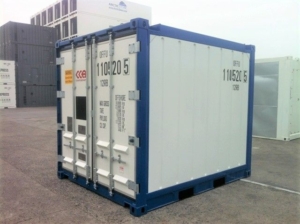In the rapidly advancing world of industrial and commercial power solutions, power container factories play a pivotal role in manufacturing and supplying portable power systems. These systems, often housed in durable containers, are essential for applications ranging from remote energy supply to emergency backup in critical infrastructure. Understanding the key features of a power container factory can provide valuable insights into how these essential power systems are designed, produced, and delivered.
1. Specialized Manufacturing Capabilities
A power container factory must possess specialized manufacturing capabilities to produce high-quality and reliable power containers. This includes state-of-the-art machinery, tools, and technologies designed to work with various materials, such as steel, aluminum, and composite materials. The factory should be equipped with CNC machines, automated welding systems, and precision cutting tools to ensure that each container is manufactured to exact specifications.
The production process in a power container factory involves several stages, including cutting, bending, welding, and assembling the container’s structure. These processes must be carefully managed and monitored to maintain high standards of quality and consistency. Moreover, the factory must adhere to international standards, such as ISO 9001, to ensure that all products meet the required quality and safety criteria.

2. Advanced Design and Engineering
One of the most critical features of a power container factory is its ability to offer advanced design and engineering services. This involves the creation of custom designs that cater to the specific needs of clients, whether for industrial, military, or commercial applications. The design process includes selecting the appropriate materials, determining the container’s dimensions, and integrating the necessary electrical and mechanical components.
Engineers in a power container factory must have extensive knowledge of power systems, thermal management, and structural integrity to design containers that can withstand harsh environmental conditions. This is especially important for containers used in remote locations or extreme climates. Additionally, the factory should be able to produce prototypes and conduct rigorous testing to ensure the design’s viability before full-scale production.
3. Integration of Power Systems
The integration of power systems is a core feature of any power container factory. This involves installing and configuring various power generation and distribution systems within the container, such as generators, transformers, inverters, and batteries. The factory must have the expertise to integrate these systems seamlessly, ensuring that they operate efficiently and reliably.
The power systems integrated into the containers must be tailored to the specific needs of the client. For example, a power container factory may produce containers designed for renewable energy sources, such as solar or wind power, which require specialized components and configurations. The factory must also consider factors such as load distribution, redundancy, and energy efficiency during the integration process.
4. Customization and Flexibility
Customization and flexibility are essential features of it. Clients often have unique requirements for their power containers, and the factory must be able to accommodate these needs. This includes offering a range of customization options, such as container size, internal layout, power capacity, and additional features like climate control, security systems, and remote monitoring.
A power container factory must have a flexible production process that allows for the customization of each container to meet the client’s specifications. This flexibility extends to the ability to produce both small and large batches of containers, depending on the client’s needs. The factory should also be able to quickly adapt to changes in the client’s requirements, ensuring that the final product meets or exceeds expectations.
5. Quality Control and Testing
Quality control and testing are crucial aspects of a power container factory’s operations. Given the critical nature of the applications for which these containers are used, it is essential that each container undergoes thorough testing to ensure its reliability and performance. This includes testing the structural integrity of the container, the functionality of the power systems, and the overall durability of the final product.
The factory must have a dedicated quality control team responsible for conducting inspections and tests at various stages of production. This includes non-destructive testing methods, such as ultrasonic or radiographic testing, to detect any potential flaws in the container’s structure. Additionally, the power systems must be tested under various load conditions to verify their performance and efficiency.
6. Environmental Considerations
In today’s world, environmental considerations are becoming increasingly important in the manufacturing industry. A power container factory should be committed to sustainability and environmental responsibility. This includes using eco-friendly materials, minimizing waste during production, and implementing energy-efficient manufacturing processes.
Furthermore, the factory should design power containers that are energy-efficient and have a minimal environmental impact during their operational life. This can involve incorporating renewable energy sources, such as solar panels, into the container’s design, as well as using energy-efficient components that reduce overall power consumption.

7. Logistics and Distribution
Efficient logistics and distribution are key features of a power container factory. Given the size and weight of power containers, the factory must have the capabilities to manage the transportation and delivery of these products to clients worldwide. This includes having a robust supply chain network and partnerships with reliable logistics providers.
The factory must also ensure that the containers are properly packaged and protected during transit to prevent damage. This is particularly important for containers that are being shipped over long distances or to remote locations. Additionally, the factory should offer after-sales support, including installation, maintenance, and repair services, to ensure the client’s satisfaction.
8. Compliance with Industry Standards
Compliance with industry standards and regulations is a critical feature of any power container factory. This includes adhering to international standards, such as ISO, IEC, and CE, as well as specific industry regulations, depending on the container’s intended use. For example, containers used in the oil and gas industry may need to comply with ATEX or IECEx standards for explosive atmospheres.
The factory must have a thorough understanding of these standards and ensure that all products meet the necessary requirements. This includes conducting regular audits and inspections to verify compliance and maintaining up-to-date certifications. Compliance with industry standards not only ensures the safety and reliability of the containers but also enhances the factory’s reputation and credibility.
9. Research and Development
A commitment to research and development (R&D) is another key feature of a power container factory. The factory must invest in R&D to stay at the forefront of technological advancements and to continuously improve its products and processes. This includes developing new materials, enhancing the efficiency of power systems, and exploring innovative design concepts.
R&D also plays a crucial role in addressing the evolving needs of clients and the market. For example, as the demand for renewable energy solutions grows, they must develop containers that are optimized for these applications. Additionally, R&D efforts can lead to the development of new features and functionalities that set the factory’s products apart from competitors.
10. Experienced Workforce
The workforce is the backbone of any power container factory. The factory must employ a team of experienced professionals with expertise in engineering, manufacturing, quality control, logistics, and customer service. This includes skilled engineers who can design and integrate complex power systems, technicians who can operate advanced machinery, and quality control inspectors who ensure that each product meets the highest standards.
Furthermore, the factory should invest in the ongoing training and development of its workforce to keep up with the latest industry trends and technologies. This not only enhances the skills and knowledge of the employees but also ensures that the factory can continue to produce high-quality products that meet the needs of its clients.
Conclusion
A power container factory is a specialized facility that plays a crucial role in the production of portable power solutions. The key features of such a factory include specialized manufacturing capabilities, advanced design and engineering, integration of power systems, customization and flexibility, quality control and testing, environmental considerations, logistics and distribution, compliance with industry standards, research and development, and an experienced workforce. These features are essential for producing high-quality power containers that meet the diverse needs of clients across various industries. By understanding these key features, one can appreciate the complexity and importance of power container factories in the modern world.
CIMC Yang Zhou Base is a leading manufacturer of power container factories and various other standard and special logistics equipment. With years of experience in the industry, it focuses on the design, production and distribution of high-quality innovative products that meet the specific needs of customers.
If you need high-quality and innovative logistics equipment, including refrigerated containers, cold chain equipment, containerized equipment integration, modular buildings, etc., База CIMC Ян Чжоу is your best choice. Welcome inquiries from customers all over the world and look forward to the opportunity to cooperate with you.


